30 Sep Finding the Wayuu
When looking for artisans most of the work is done on the ground. Many of the groups we work with are so small they have no online presence, it’s these group’s that need help the most.
This was taken to the extreme when we went in search of the Wayuu people in the deserts of La Guajira in northern Colombia.
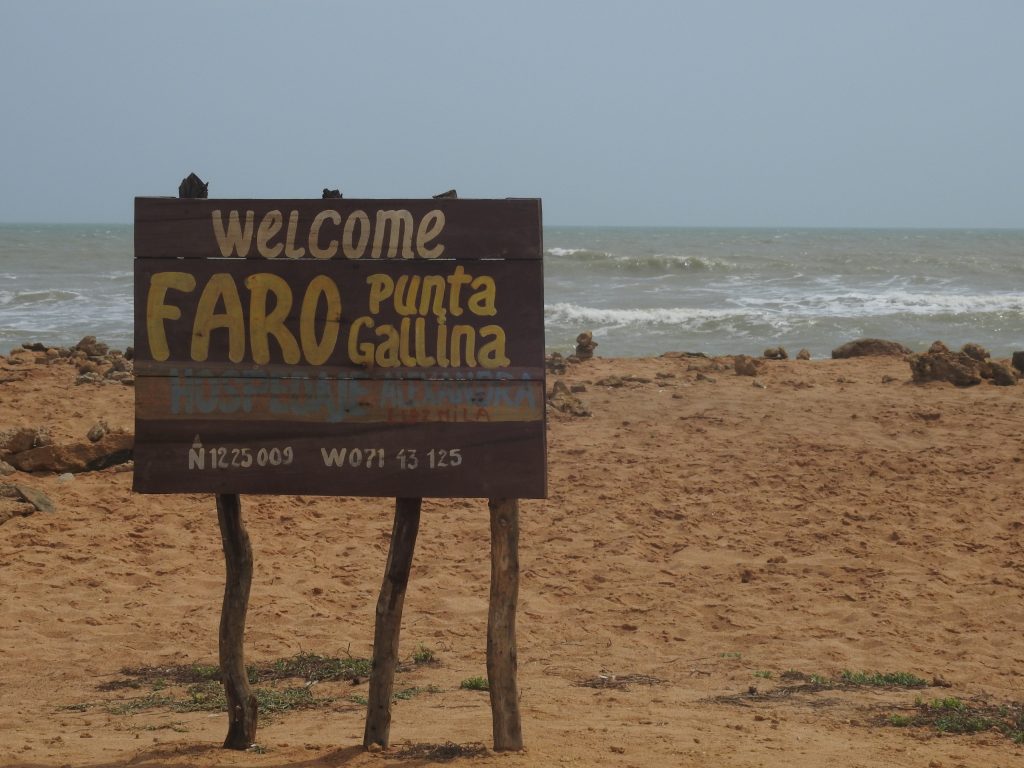
Upon arrival in Colombia, all we knew was we loved the Mochila bags and wanted to learn more about the Wayuu people, one of the poorest indigenous groups in the world.
The Wayuu people are found deep in the La Guajira desert in the most northern part of Colombia. So we went in search!
The biggest town on the edge of la Guajira is called Riohacha. We head to Mercado Nuevo, the largest market in the town and find an array of Mochila. Every market stall is selling them. The designs are stunning but lacking in the quality we have heard of. The prices are also incredibly low, so low that surely the women can’t support their families. (See our blog post on mass commercialisation) We need to get deeper into the desert and find the women making the Mochilas.
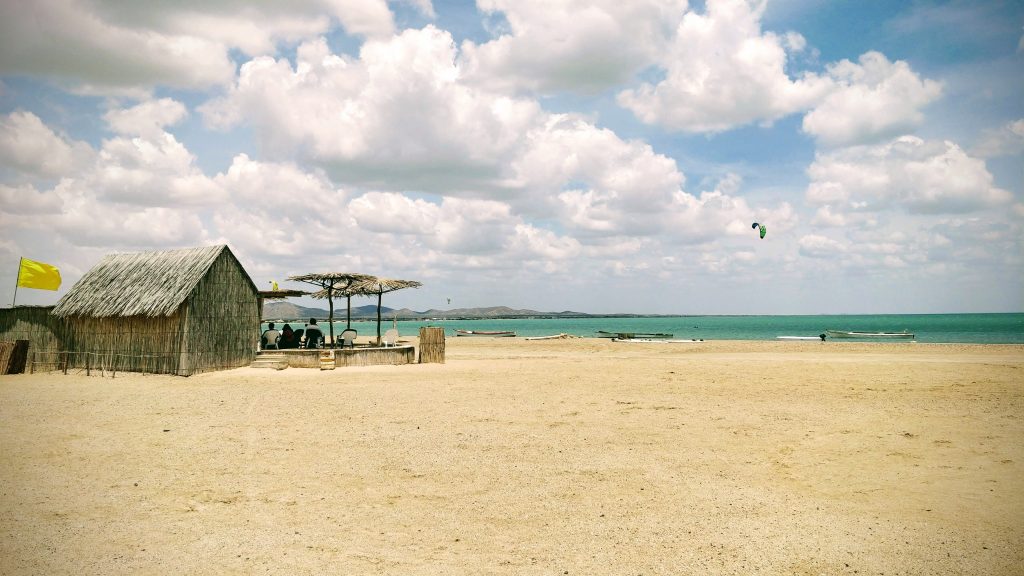
Cabo de la vela.
Asking around we learn Carbo de la Vela is home to many of the Wayuu people making the Mochila. Getting there is only possible via Uriba a small gateway town in La Guajira and then onwards only by 4×4. So we find a collectivo that will take us to Uriba and we take the two hour journey, it’s all road but the signs of city life slowly turn to desert with nothing as far as you can see.
From Uriba we wait for a 4×4 collectivo which takes us another 2 hours, over sand dunes and all off road to the small town of Cabo de la Vela. All solar powered with little to no internet it’s famous only for its kite Surfing, with everyone sleeping in hammocks just on the shore line.
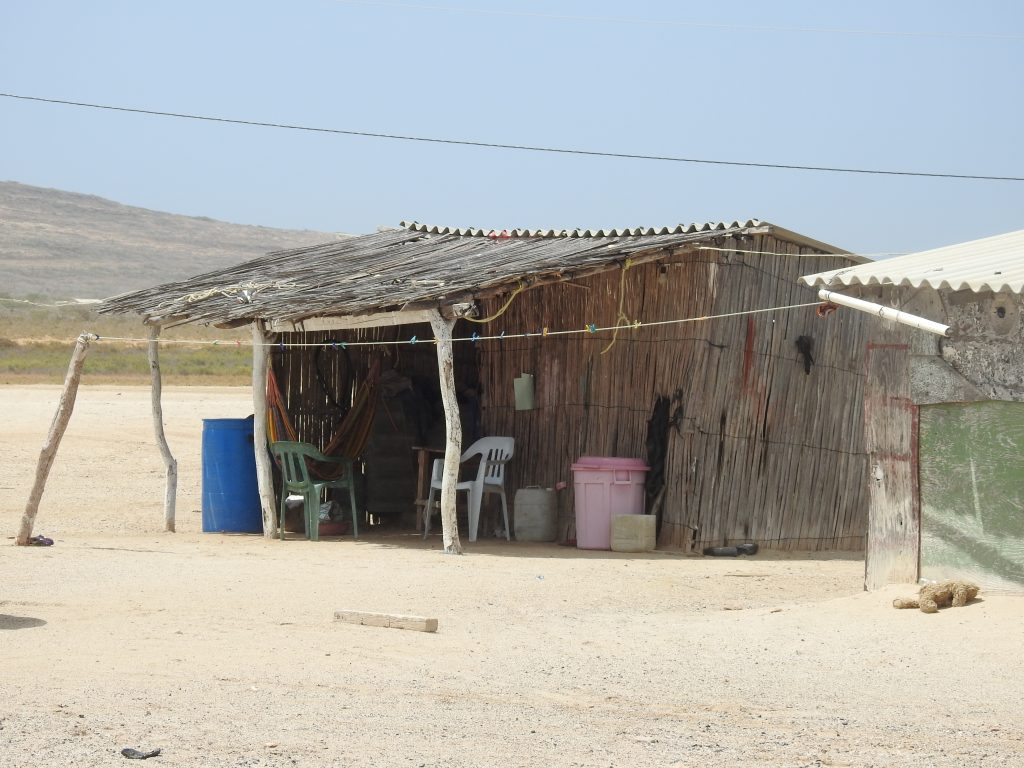
We meet some locals and ask if there are any women making the Mochilas and are pointed to a small group of huts just within view. The twenty minute walk brings us to Aurora’s house. There she is making the Mochila right on her porch. Our first real success! She teaches us about about sucess of making the bags and the intricacy of the art. Each bag can take between one week to one month to make! All by hand and the designs all from memory nothing is written down. The materials all brought in from Riohacha which is where she also sells her Mochila in the markets. Running the numbers we quickly learn that including the transport costs to Riohacha she will earn around one dollar per day!
Aurora learned her skills from her mother and has been passing the skills onto her teenage daughter. Something that has been passed generation to generation for as far back as she can remember.
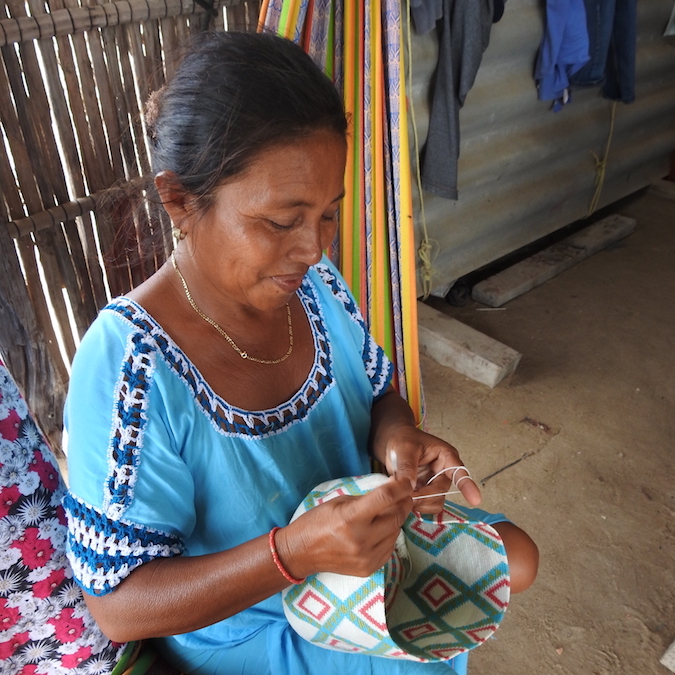
Aurora also comments on the lack of quality at the markets with most women having to turn around as many bags as possible just to sustain their family. Quality is not a factor here just a production line. Quality is something Aurora will not compromise on. You can see the pride she takes in every stitch and keeps talking of the tradition she want to keep alive, she sees making the Mochila as an art form and something she takes great pride in.
She shows us the bags she has available and we jump at the chance to buy them. With no way to contact Aurora in the future, these will make up part of our grail collection.
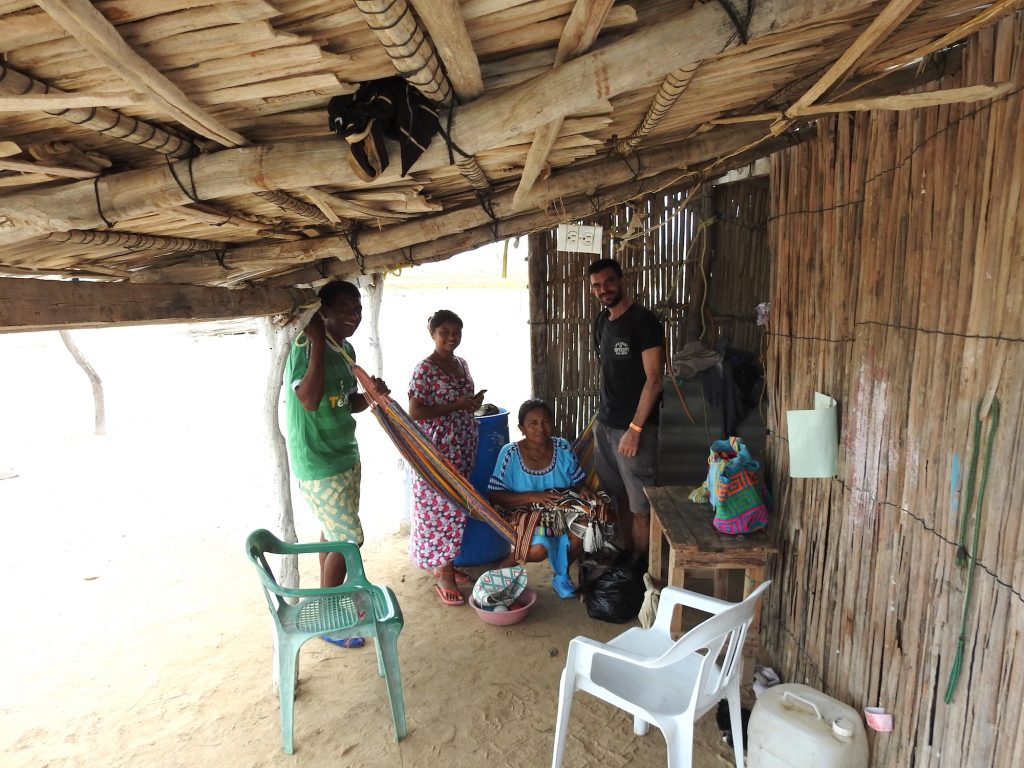
Punta Gallinas
Still in search of a co-operative we can work with, we head to the most remote part of the desert Punta Gallinas. It’s three hours from Cabo de la vela by 4×4 and a short boat journey and we manage to find a small hostel offering hammocks normally to tours visiting the desert. Again we ask where we can find the women making the bags and if there organisation here. We are told to wait as someone will come by later that may be able to help but there is no organisation in Punta Gallinas.
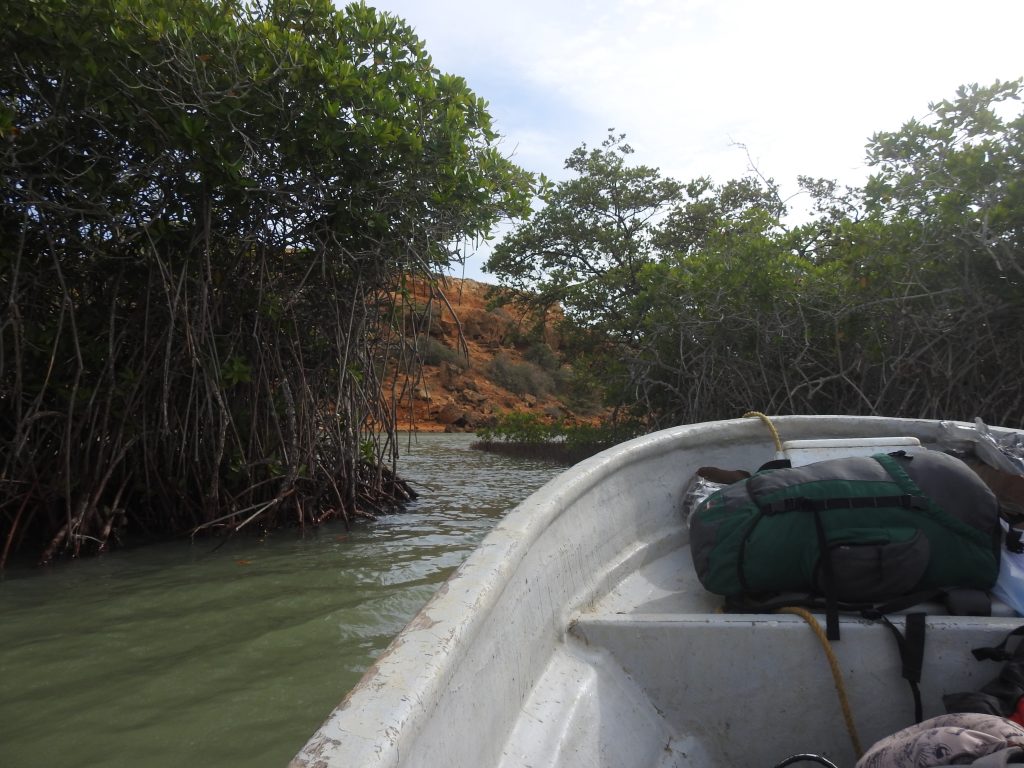
We are met by someone on a motor bike who will give us a lift to a family he knows of. The 20 minute journey takes us deep into the desert and well into the unknown. We arrive at Yakalins house and are greeted warmly. She quickly explains the process they take and how it’s getting harder and harder to sustain her family as the price the market will pay for the bags is getting lower and lower as more bags reach the market.
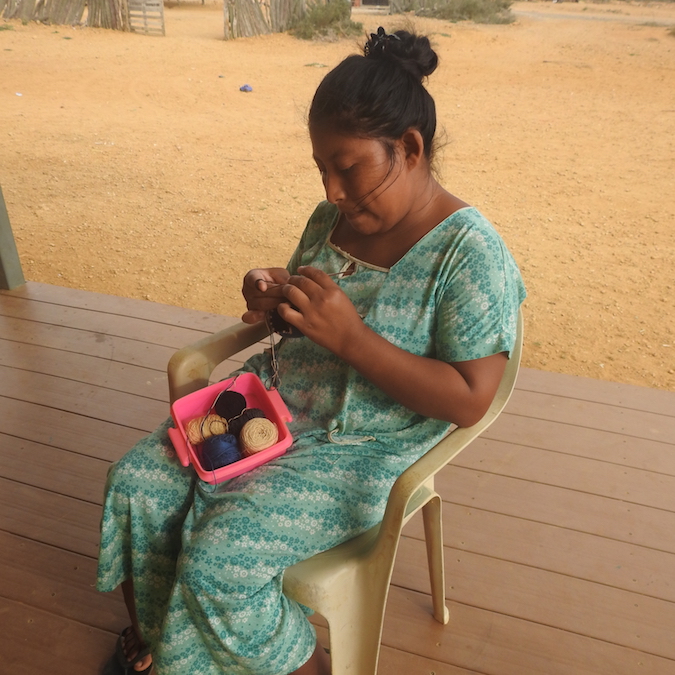
Showing us her bags we again jump at the opportunity to buy, paying well above market value and at an amount that can sustain her family. There is no way of contacting Yakalin in the future, she has heard of a co-operative in Riohacha that is running but she has no further details. With our lift back to the hostel already gone we have a long wait until we can hitchhike a passing motor bike back to the hostel.
Cuestecitas
From Punta Gallinas we head back south and closer to the Venezuelan border to the larger town of Cuestecitas. Its 5 hours in 4×4 and collectivos through the desert, its an incredible journey passing small Wayuu Rancharias and literally nothing else but beautiful desert as far as the eye can see. Arriving in town we head to the market just as it’s starting to open hoping to find women selling their bags to the market.
We meet Adriana who has four bags with her, she tells us she has traveled for three and a half hours from her rancheria to sell the Mochila at the market, the price she is paid hardly covers the costs of the materials and transport, is unsustainable for her family, and to keep her children in school, but it is all she knows and has a love of her tradition, it’s what she wants to do.
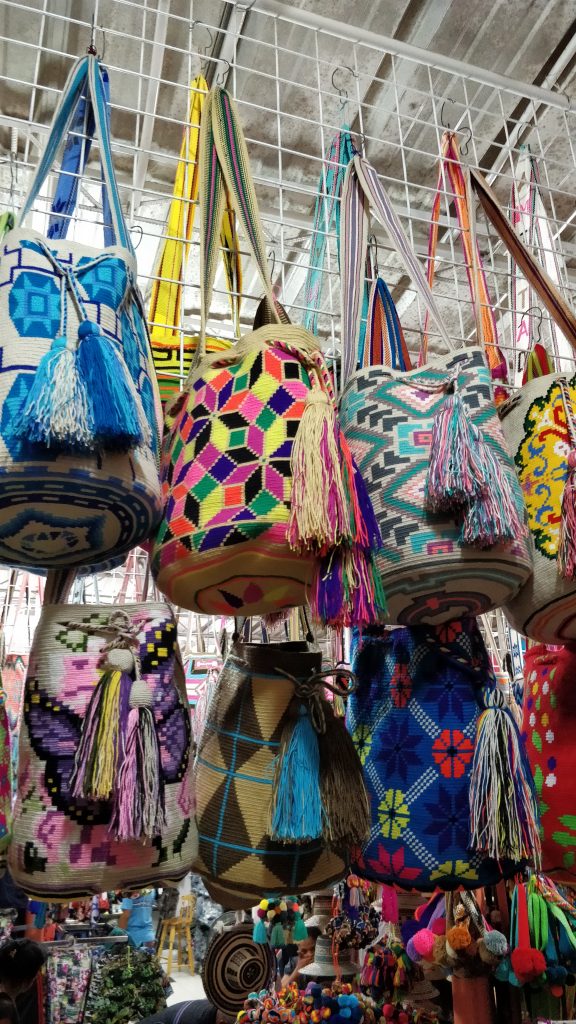
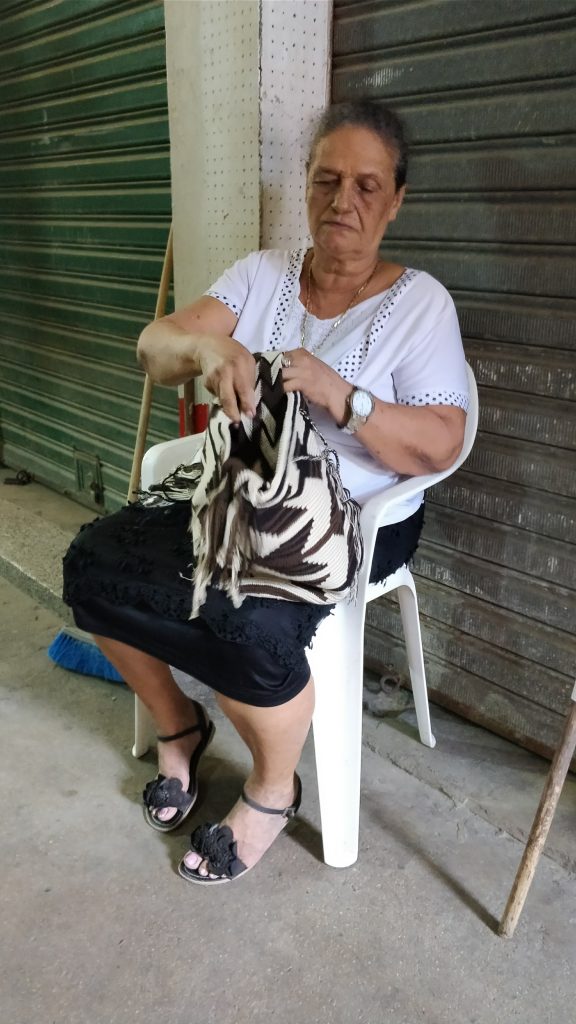
We buy the bags from her and buy her the materials to take home for her next project. She is looking to work with a co-operative in Riohacha she has knows of. We now have a number. Adriana completes our Wayuu grail collection and we now head back to Riohacha to meet up with Paula who runs the co-operative there.
This has been a true adventure for TMAC through la Guajira really pushing us to the limits, hitching motor taxis, knocking on the doors of huts in the middle of the desert and traveling by 4×4 into the unknown. But we really have learned is the struggle of the Wayuu people desperate to keep their traditions alive all while mass commercialisation is working against them.
To learn more about our cooperative in Riohacha See our blog post here.



No Comments